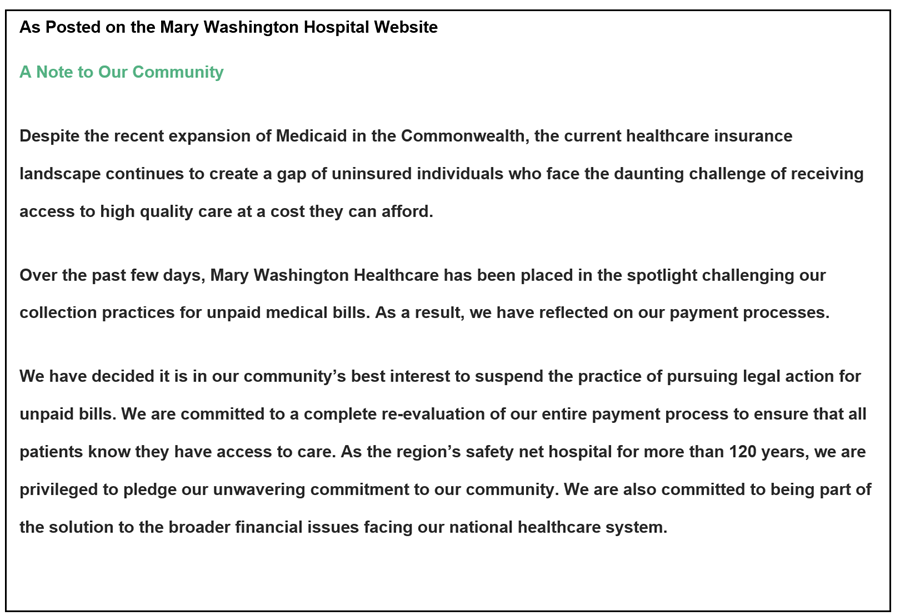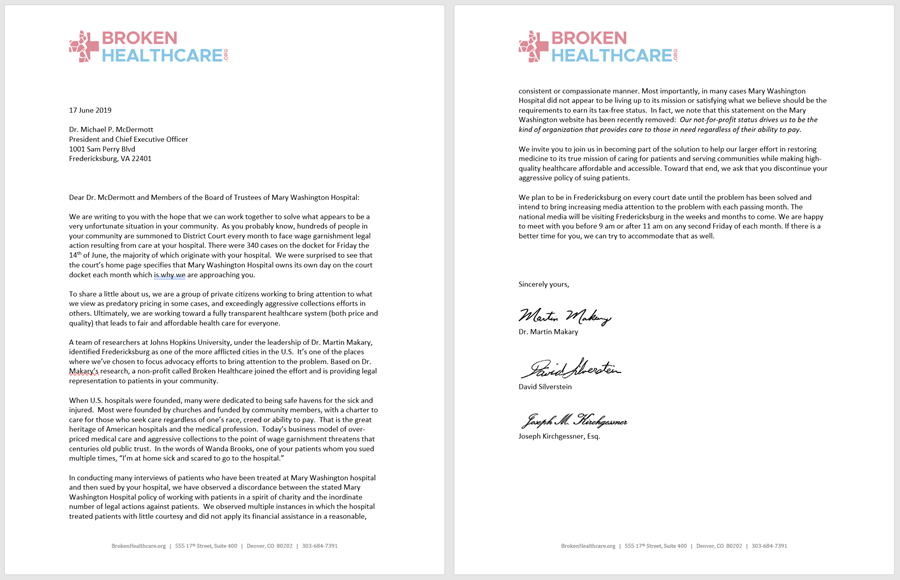Perhaps the biggest victory yet!
While President Trump’s signing of a groundbreaking executive order on Monday was a big win, we just got what might be an even bigger win—at least in the short term.
Late last year I met Dr. Marty Makary, a renowned surgeon and professor of Public Health at Johns Hopkins University. Marty told me about the research he was doing. That research was published this week in JAMA which talks about the incredible problem of hospitals suing patients—primarily poor and lower middleclass patients, for unpaid medical debt that they can never come close to paying because of the absurdly high prices for which they are being billed.
One of the hospitals Marty and his research team focused on was Mary Washington Hospital in Fredericksburg, VA, which sues on the order of 100 patients every month.
After learning of Marty’s work, Broken Healthcare joined the research team, identified patients, and hired a local attorney to create a pseudo public defender model. The result has been that every time (100%) that we provided a legal defense for a patient, the hospital dropped its law suit.
Then, last week, Marty, myself and the local attorney we hired (Joey Kirchgessner) sent a letter to the CEO and all board members of Mary Washington Hospital. Earlier this week, the Wall Street Journal and NPR both called out the hospital for its predatory billing practices. And then today, the hospital posted what’s below on its website—declaring that it will no longer sue patients for unpaid medical bills. The letter we sent is below as well.
This is a huge victory for the people that were being victimized in this small community, but it’s not a solution to the problem of skyrocketing healthcare prices. That can only be achieved by moving to a fair and competitive market that is created through truly transparent prices. Only then will we start to see the cost of healthcare decline, enabling affordable access for all.
Please applaud Mary Washington’s CEO and Board for responding to the public pressure they were facing. And feel good about how we were able to help hundreds upon hundreds of people’s who’s lives were being destroyed. But also know that this is going on in many other communities all over the United States and that the broader problem is far from solved.





